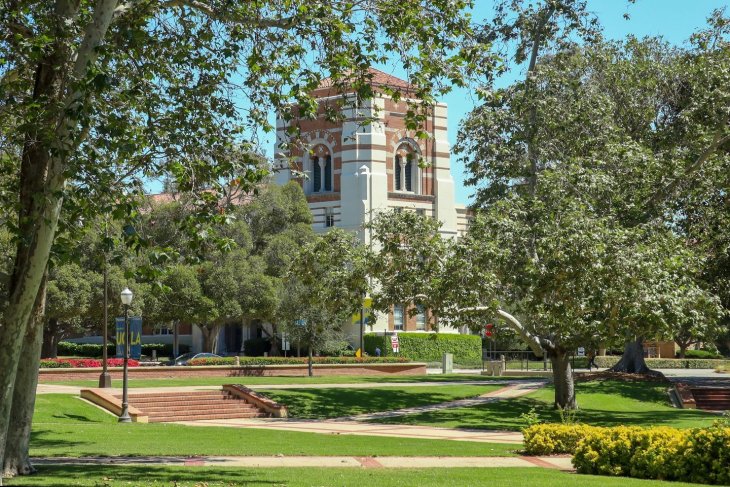A plan to raise the minimum wage to $15.37 per hour for workers at big hotels in Los Angeles was approved today by the City Council’s Economic Development Committee.
If approved tomorrow by the full council, hotels with 300 or more rooms would need to start paying the $15.37 minimum wage by July 1 and those with at least 150 rooms would have to comply by July 1, 2016.
The cut-off for the smaller hotels had earlier been proposed at 125 rooms, but the committee today amended it to 150 rooms.
Unionized hotels in many cases would be exempt from the wage hike, due to workers already agreeing to a bargained contract.
The wage hike would affect an estimated 13,000 hotel workers, according to one economist commissioned by the city.
Supporters said the wage hike would improve the quality of life for low-paid hotel workers barely making ends meet, while opponents said it would lead to job losses or hotels cutting back on services.
Councilman Curren Price, who chairs the Economic Development Committee, said “thousands of hardworking men and women will be better off if we pass this policy to increase minimum wage.”
“Sometimes you need to do what you feel is right, and for me, this is right,” he said. “If I can make life better for one child because his mom and dad now make enough salary so that they don’t have to work two or three jobs, and be able to help with homework and attend meetings, I think I’m doing my job.”
Price said city officials are working on an incentives package for hotels. He assured hotel representatives that he will keep working with them “to find ways to ensure development in our city.”
Price co-authored the proposal with several colleagues, including Councilwoman Nury Martinez, who said the wage hike would ensure that “people who service our tourists … don’t have to clock out at 3 in the afternoon and run to their second jobs.”
The wage hike plan also drew support from officials from nearby cities, including Santa Monica Mayor Pam O’Connor and Long Beach Councilwoman Suja Lowenthal.
Santa Monica is considering raising its citywide minimum wage, while Long Beach voters approved a $13 minimum wage for hotel workers in 2012.
The proposed minimum wage for hotel workers in Los Angeles grew out of a campaign by labor groups.
Los Angeles Federation of Labor Executive Secretary-Treasurer Maria Elena Durazo told the committee that the $15.37-per-hour wage would “provide basic living needs for (members’) families,” who can in turn spend their paychecks “in their local communities.”
Los Angeles Area Chamber of Commerce President Gary Toebben spoke against the wage hike, saying studies of similar wage hikes at hotels near LAX and in Long Beach showed that the measures “resulted in a pay increase and a loss of jobs.”
Toebben was among business and hotel industry representatives who accused city officials of rushing the wage hike vote, which occurred just a day after three economic impact studies required as part of the process were released.
Christopher Thornberg, one of the economists who submitted a report on the issue, told the committee that he was skeptical the proposal would do what’s intended.
His research group, Beacon Economics, was selected by both business groups and labor groups to study the potential impact of the issue.
“Do we need to do something about wages in L.A.? Absolutely,” he said. “Is this the appropriate solution? I’m not sure.”
Thornberg said larger hotels on average pay more than the proposed minimum wage, while many of the industry’s lowest paid workers are at smaller hotels that would be exempt from the wage increase.
“I feel like we’re aiming at the wrong target,” he said. “I think we’re overstating the actual negative situation that exists among hotel workers, and ultimately we have to take into account the jobs impact in an already distressed labor market.”
The committee heard from economists chosen by groups from either side of the issue.
Patrick Burns of the Economic Roundtable, the research group recommended by labor groups, said hotel workers “are among the lowest paid workers in the formal sector of the economy.”
Los Angeles’ hotel workers are not only paid lower wages than “major tourism peers” in New York and San Francisco, but also less than hotel workers in San Diego and Las Vegas, Burns said.
The minimum wage hike enacted for hotels around Los Angeles International Airport led to improved conditions for those worker, he said.
Bruce Baltin of PKF Consulting, the group picked by business groups, said “employees will lose their jobs” if the wage hike is enacted.
He noted that housekeepers might be the only faction of the hotel industry that would benefit, while those who work in tipped positions, such as waiters, could see their jobs disappear.
Mayor Eric Garcetti has said he would support the increased hotel wage if it is approved by the City Council. The hike is higher than his own proposed $13.25 minimum wage increase for all industries in the city.





















